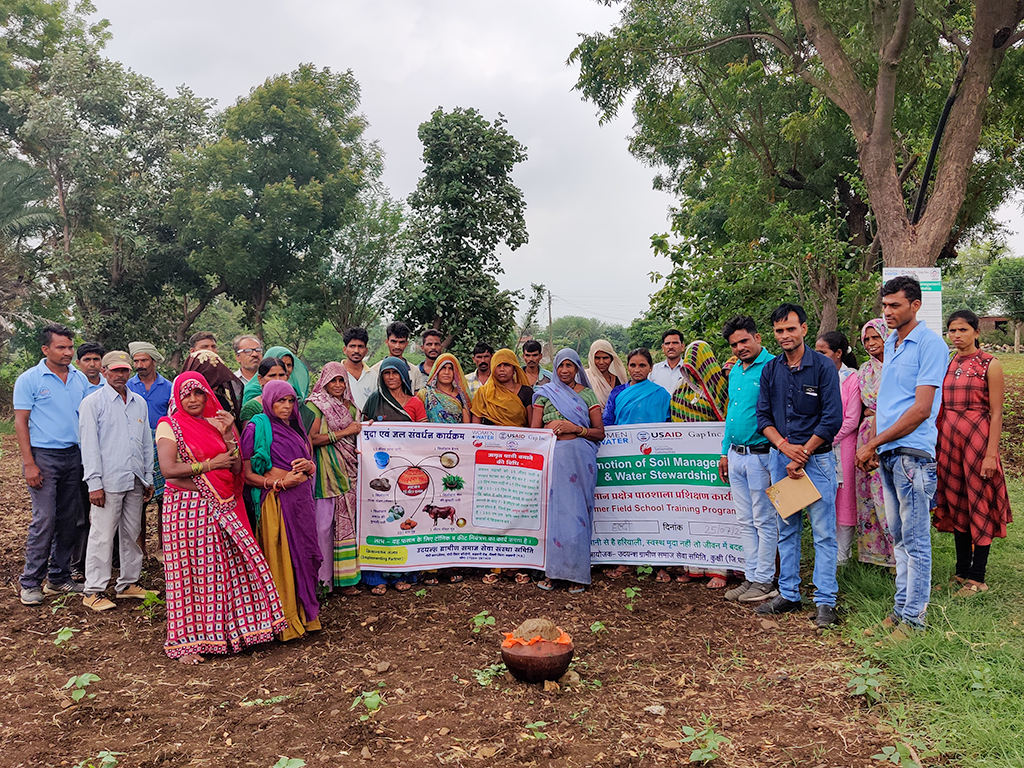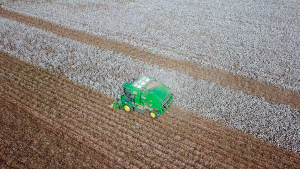header

At the Institute for Sustainable Communities, in India, we’re shaping a climate resilient textile value chain. Cotton, which is the primary input for the textile industry, is a commercial crop cultivated globally by approximately 100 million farmers. Cotton cultivation supports the livelihoods of 250 million people engaged in cotton processing and trade activities. Globally, cultivation spans 100 countries, diverse climatic conditions, and 3% of total cultivated land. Cotton is vulnerable to climate variability, which is particularly relevant for a developing country like India where the socio-economic consequences of climate change are severe for already disrupted populations.
During SIWI World Water Week 2021, the Institute for Sustainable Communities convened a session titled Water, Climate, Cotton: Re-envisioning An Inclusive, Sustainable Textile Value Chain. We featured our research in the field and speakers from Gap Inc., a leading textile and apparel brand, Pratibha Syntex Ltd., a major textile manufacturer, and The Hongkong and Shanghai Banking Corporation (HSBC) Limited, a leading financial institution. The session honed in on understanding climate change effects in India on communities and the state of water resources and cotton cultivation. Approaches and solutions outline pathways for supporting farmers and building a sustainable and resilient textile supply chain.
Setting the session’s context, Divya Nazareth, Program Officer, Institute for Sustainable Communities, delivered a presentation covering our foundational research articulating the climate-cotton-water nexus and vulnerabilities. This study outlines historical and future climate trends and effects in the growing stages of cotton. Seasonal climate analysis predicts mismatch in rainfall and temperature patterns with crop phenology, less productivity and yields. Small holder farmers are increasingly vulnerable to climate changes in cotton cultivation.

Lisa Hook, Senior Sustainability Manager, Gap Inc. highlighted the emerging water scarcity risks for the business and communities. Gap Inc. is committed to water stewardship, climate resilience, and engaging their supply chain. This major brand’s engagement as our partner in our USAID Women+Water Alliance is helping to improve and sustain the health and well-being of women and communities in India.
Shreyaskar Chaudhary, Managing Director and CEO, Pratibha Syntex Ltd., spoke about risk reduction of productivity and quality of cotton due to climate change in Central India, which is a major cotton growing belt. Pratibha Syntex is engaging 35,000 farmers to promote organic practices for creating a self-sustaining community called swaraj, which means self-reliance.
Aloka Majumdar, Head of Corporate Sustainability, HSBC India outlined the need for financial institutions to manage financial services risks in order to avoid negative impacts on people and environment. HSBC defines sustainability risks in two buckets, environmental and social. HSBC is integrating sustainability risks into the credit risk framework and its social philanthropy.
Romit Sen, Associate Director, Institute for Sustainable Communities, tackled the need for the textile sector to combine circularity principles and science-based priorities. At the Institute, our vision of climate resilient cotton communities for smallholder farmers is hand in hand with economic security, biodiversity, and environmental and natural resources conservation.
The viability of the textile industry, the well-being of cotton farming communities and the ecological conservation of cotton growing areas depends upon, societally, how best we are able to prioritize populations that are the hardest hit, minimize the climate, water and environmental risks, and reduce exposures. With our partners, the Institute for Sustainable Communities is building the adaptive capacities and resiliency of communities and the textile industry. Collaboration amongst interdisciplinary and cross-sector stakeholder groups is essential.
